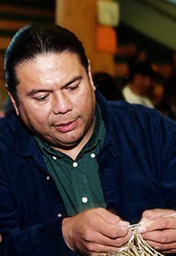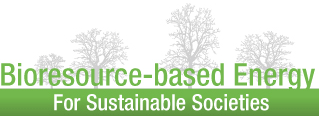
Rodney Cawston
People - Students - Cohort 1 - Rodney Cawston
Rodney Cawston
Education: BA, Business Administration/Management, 1994,
Eastern Washington University
Work Experience: Twenty years of state, tribal and federal
management including experience as a Program Manager and the Contract
Officer with the Colville Confederated Tribes
Major: Forest Resources
Advisor: Kristiina Vogt
Research Project: To explore the feasibility of producing Methanol/Ethanol Fuel from locally available wood waste biomass on the Yakama and Quinault and other interested tribal governments in Washington State
The Colville Confederated Tribes in north Central Washington State is considering the possibility of converting woody biomass to energy. This interest stems from several factors:
- the desire to reduce the threat of wildfire by removing excess material from the forests, the possibility to develop economic development from underutilized forest products,
- to provide jobs and
- the generation of renewable energy.
This study will explore the social and cultural aspects of converting forest biomass to energy through use of semi-structured interviews. Interviewees will be selected from known tribal leaders, traditional leaders, traditional food gatherers, basket weavers, and forest industry. Information gained through the interviews will be useful to identify the opportunities for the barriers to converting forest biomass to energy. Potential strategies to overcome the barriers will be addressed, including policy components with both state and federal government and where the general public may be involved with land planning decisions.
This study will also include an examination of factors making supply more difficult to secure including long transport distances, long-term and continuous commitments from state and federal government and private land-owners, is inexpensive, and guaranteed. A vital component to expansion of the tribe’s existing cogeneration plant is the challenging barrier of access to adequate supply.
In addition, this study will address small diameter ponderosa and lodge
pole pine bio-mass that is currently non-merchantable, produced as a
by-product of tree thinning or other forest management activities on
the Colville Reservation.
–The Colville Tribe has estimated biomass on the Colville Reservation
of logging residue
–The Tribe has contracted a firm to estimate the total biomass from
forest residue for a 75 mile radius from Omak, WA
–The Colville Tribe is proposing to take over management of the Colville
National Forest adjacent to the reservation, possibly as a demonstration
project
The most important goal of this research is to provide information
useful to policymakers, land managers, and communities of a model program
which promotes tribal energy sufficiency, economic development and employment
on tribal lands through the use of renewable energy.

